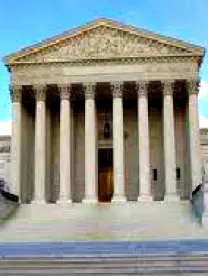Yesterday, the Supreme Court applied its six-day old ruling in Comcast Corp. v. Behrend to vacate and remand the Seventh Circuit’s affirmation of class certification in Ross v. RBS Citizens, N.A., 667 F.3d 900 (7th Cir. 2012). The Court’s application of Comcast to Ross, a wage and hour case, follows closely on its application of Comcastto Whirlpool v. Glazer, 678 F.3d 409 (6th Cir. 2012), a products liability case, and leaves no doubt that the heightened certification standards announced in Comcast apply to all class actions regardless of the nature of the substantive claims.
The Ross plaintiffs are employees of RBS Citizens who claim they were denied lawfully earned overtime pay. The plaintiffs asserted claims under the federal Fair Labor Standards Act and the Illinois Minimum Wage Law. The District Court certified two classes, one class of employees who claim they were improperly classified as "exempt" from overtime and one class of non-exempt employees who claim they simply were not paid for time worked.
The defendants challenged the District Court’s certification order arguing it did not comply with Rule 23(c)(1)(B), which states, "An order that certifies a class action must define the class and the class claims, issues, or defenses, and must appoint class counsel under Rule 23(g)." The defendants argued that the District Court’s order did not properly identify the class, the claims or the issues in the case because, based on plaintiff’s multiple theories of liability, membership in the class could not be defined prior to a ruling that one or more particular pay practices were unlawful.
The defendants also argued that the case was unfit for certification under Dukes v. Wal-Mart, the Supreme Court’s recent case explaining that the commonality requirement of Rule 23 requires that the plaintiffs be able to prove liability on a class wide basis, without individual proofs. The defendants argued that, because plaintiffs posited four different theories as to how defendants denied plaintiffs overtime pay, the District Court would have to hold individual hearings to determine how and if an individual class member was denied pay.
The Seventh Circuit rejected defendant’s arguments and affirmed certification. RBS Citizens petitioned the Supreme Court for certiorari. In the interim, the Supreme Court decided Comcast, which, among other things, held that a court may only certify a case after it has performed a rigorous analysis. The Court stated that in conducting this analysis it "may be necessary for the court to probe behind the pleadings before coming to rest on the certification question." The Court applied this reasoning to hold that the Comcast plaintiffs had failed to satisfy the requirements of Rule 23 because they failed to demonstrate that their proffered methodology for calculating class damages was consistent with their theory of liability.
Yesterday, the Supreme Court granted RBS Citizens’ petition and vacated and remanded the case to the Seventh Circuit to examine the impact Comcast may have on the propriety of class certification of the wage and hour claims. While it is unclear how the Seventh Circuit will decide the case on reconsideration, Comcastappears to undercut its prior holding. The Seventh Circuit’s decision will lend important insight into how the Supreme Court’s holding in Comcast will be applied in future cases.






 />i
/>i
